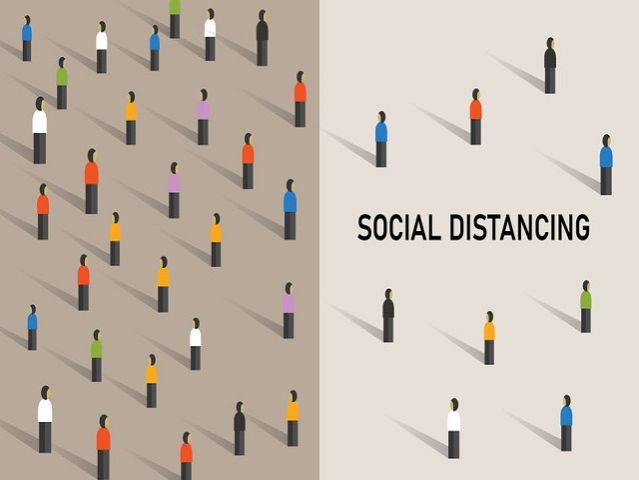Covid-19: Challenges of motivating compliance with large-scale behavioral change
| Datum: | 16 juni 2020 |
| Auteur: | Susanne Täuber |

A recent study suggests that lockdowns in Europe have saved more than three million lives, illustrating the relevance of compliance with behavioral change measures such as social distancing. But especially in the beginning of the pandemic, violations of social distancing measures have been observed in most affected countries, from Corona-parties in Germany, to playdates with dozens of children and their mothers in publics parks in The Netherlands, border-crossing pub-tours in Belgium, to students celebrating Spring Break in the United States.
Leadership often uses moral arguments to stress that behavioral change is imperative, because morality is thought to instill a sense of urgency in those addressed. Indeed, moral motivation is one of four core motivations for social action (1). However, stressing the moral core of a desired behavior can also backfire: rather than motivating people to change their behavior, moralization often triggers defensive inaction in people. Political leaders who need to motivate for instance compliance with social distancing measures hence confront a dilemma: stressing the moral imperative of social distancing will motivate some citizens to comply, and push others into defensiveness.
Researchers have suggested possible ways to overcome this dilemma of moral communication (2). These include the non-moral framing of persuasive messages as a means to avoid defensive responses, promoting value-identity fit and offering unambiguous descriptions of the desired behavior. Numerous studies have demonstrated that people react less defensive to behavioral change messages when these are framed in non-moral terms. Messages that can be expected to work well are those that are informative rather than judgmental. For instance, the Dutch premier condemned citizens who went outside as “antisocial, messy, and laconic”. Meanwhile, it appeared that most citizens had no idea how to judge a distance of 1,5 – 2 meters. Accordingly, experts on crisis communication criticized the Dutch premier’s language as schoolmasterly and ineffective.
People are more motivated to act when the value that is highlighted by a moral message (e.g., “caring for vulnerable people”) is clearly linked to a broader identity (3). In contrast, the media often stressed a clash between generations, for instance in their coverage of spring breakers prioritizing their “right to party” over vulnerable people’s right to survive. Trying to bridge this division, many leaders addressing young people emphasized togetherness (“In our collective fight against the coronavirus…”), stressed the agency of those addressed (“we can all contribute”), and pointed out the implications of compliance for others rather than for the individual (“for yourselves and all those you interact with and love, practice social distancing and save lives”).
A combination of these measures likely benefits from the powerful motivating forces of morality, while avoiding the defensiveness associated with moral communication. It might therefore effectively motivate citizens’ compliance with behavioral change such as social distancing. Leadership should thus actively promote value-identity fit to motivate compliance with large-scale behavioral change. This requires credibly stressing the fit between “what we stand for” (values) and “who we are” (identity). At the same time, leadership must be unambiguous about correct ways of expressing the shared values.
Dr. Susanne Täuber (s.tauber rug.nl) works at the Faculty of Economics and Business, HRM & Organizational Behavior, University of Groningen. Her expertise is in social identity and intergroup behavior, and organizational change.
References
- Van Zomeren, M. (2013). Four core social‐psychological motivations to undertake collective action. Social and Personality Psychology Compass, 7(6), 378-388.
- Täuber, S., van Zomeren, M., & Kutlaca, M. (2015). Should the moral core of climate issues be emphasized or downplayed in public discourse? Three ways to successfully manage the double-edged sword of moral communication. Climatic Change, 130(3), 453-464.
- Kutlaca, M., Van Zomeren, M., & Epstude, K. (2016). Preaching to, or beyond, the choir: The politicizing effects of fitting value-identity communication in ideologically heterogeneous groups. Social Psychology, 47(1), 15-28.


